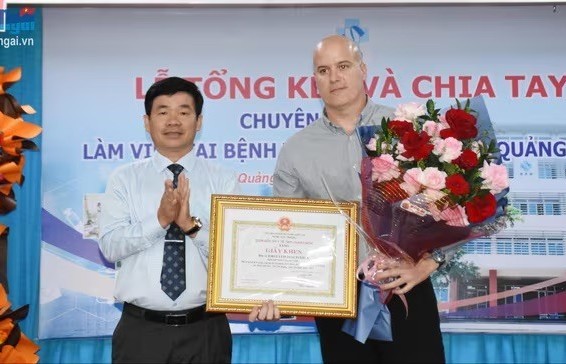Vietnam-European Union Cooperation in Responding to Climate Change (Part 3)
| Vietnam - EU Cooperation Forum: Adaptation efforts for a sustainable future |
| Vietnam - India Relations Further Consolidated Through Educational Cooperation |
Difficulties for Vietnam - EU cooperation in promoting global governance
Besides opportunities and advantages, Vietnam - EU relations also face many difficulties from both sides in building cooperation mechanisms and responding to global challenges.
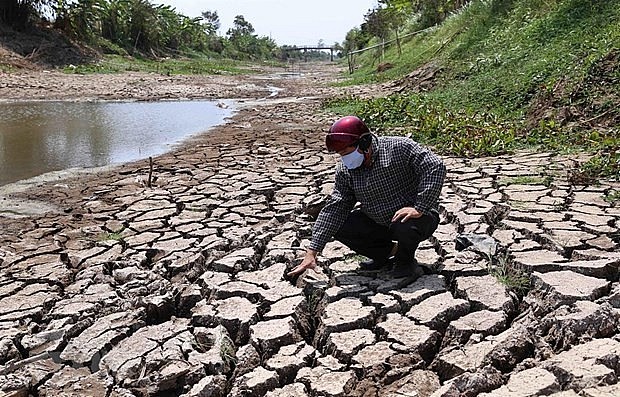 |
| A canal dries up as a result of drought (Photo: VNA) |
Firstly, despite being a global economic powerhouse with significant economic, trade, and investment interests in the East Asia-Pacific region, the EU's political role in promoting regional peace and stability remains limited compared to other major partners. This is partly due to geographical distance and the EU's extensive commitments in its immediate neighborhood. EU-Vietnam relations are also influenced by a number of internal EU issues, including populism, protectionism, and extremism, as well as the ongoing impacts of the COVID-19 pandemic, which have hindered efforts to strengthen bilateral cooperation.
Secondly, the ongoing Russia-Ukraine conflict, which began in February 2022, has continued to disrupt the EU economy, leading to low growth and a challenging recovery. Energy markets, particularly for natural gas, have experienced significant volatility, and supply shortages have become increasingly prevalent. Moreover, commodity markets have been severely impacted. The EU's GDP growth in 2023 was a modest 0.5%, and the eurozone's growth was even lower. While GDP growth is projected to recover slightly in 2024, reaching 1.6% for the EU and 1.5% for the eurozone, the recovery is expected to be modest. Declining inflation and strong wage growth have supported household disposable income, leading to a recovery in personal consumption. However, tightening monetary policy is expected to have a more significant impact in 2024. In the labor market, the eurozone's unemployment rate rose to 7% in 2023. These challenges have hindered the EU's ability to support Vietnam in addressing global challenges.
Third, the EU is a high-standard market with a complex legal system, long geographical distances, and high transportation and logistics costs. In particular, differences in consumer culture and development levels are significant obstacles to Vietnam-EU cooperation, especially in responding to global challenges. Vietnamese goods need to meet EU standards and regulations, especially new regulations such as anti-deforestation, and carbon standards, which will have a strong impact on Vietnam's key export products and affect the benefits gained from participating in the EVFTA. To take advantage of the opportunities brought by the EVFTA and access high-tech investment flows from the EU, Vietnam needs to continue to improve its institutions, policies, and laws in a transparent manner, consistent with international practices, thereby contributing to promoting economic restructuring and transforming the growth model towards a more sustainable and inclusive direction.
Fourthly, while there are still some differences between Vietnam and the EU, particularly regarding viewpoints and approaches on issues of democracy and human rights, both sides consider these differences to be minor compared to the overall benefits of the growing Vietnam-EU relationship. The two sides have also established mechanisms for dialogue and cooperation to address these differences in their relations.
Vietnam - EU deploy cooperation in global governance to respond to climate change
Currently, Vietnam is undergoing a transformation of its economic model towards a digital, innovative, green, and sustainable economy that balances economic growth, environmental protection, and social welfare. Green and sustainable development is an inevitable global trend and a strategic direction for Vietnam, as outlined by the Party and the State. This is one of the most important and prioritized areas of cooperation between Vietnam and the EU.
Vietnam is among the countries most severely impacted by climate change and environmental pollution. To effectively address this issue, international cooperation is crucial. Partnering with the EU, a global leader in climate change and green transition, will not only help Vietnam mitigate the impacts of climate change but also enhance its adaptive capacity and foster sustainable economic development that benefits all citizens, businesses, and society. Green transition cooperation is comprehensive, encompassing key areas of Vietnam's development priorities such as green economy, circular economy, digital economy, and blue economy. Vietnam is eager to further strengthen cooperation with the EU, focusing on areas where the EU has a comparative advantage and aligns with current global trends, to serve green and sustainable development, and respond to climate change. Ultimately, this will contribute to the shared goal of promoting a comprehensive Vietnam-EU partnership, bringing tangible benefits to the people and businesses of both sides, and contributing positively to peace, stability, development, and prosperity in the region and the world.
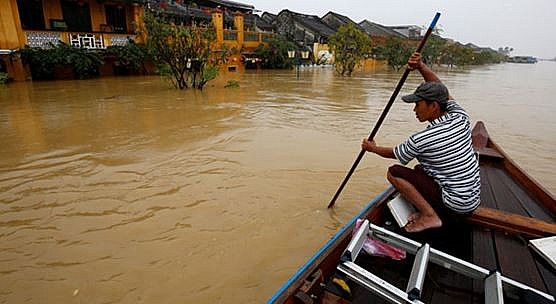 |
| Photo: IMF |
For the EU, this is a priority area where it has a significant advantage. The EU is also actively promoting international cooperation with diverse partners to diversify its supply chains, mitigate risks, implement its green growth strategy, and enhance its global role. The international community and the EU commend Vietnam's strong and concrete commitments and actions, including reducing greenhouse gas emissions, joining the Just Energy Transition Partnership (JETP), reaching peak emissions by 2030, and achieving net-zero emissions by 2050. The EU has affirmed its commitment to working closely with Vietnam to build a new model of cooperation between the EU and the Indo-Pacific region in this important area. Specifically, the EU will support Vietnam in achieving its goals in four key areas: 1) Providing funding to support Vietnam's sustainable growth in specific sectors such as transportation, education, healthcare, green transition, and digital transformation. The EU has allocated over EUR300 billion (US$321.2 billion) in funding for countries worldwide, including Vietnam; 2) Supporting Vietnam's just energy transition through the G7 and other international partners. Supporting Vietnam's transition from coal to clean and green energy with US$15.5 billion in funding from public and private sources; 3) Supporting Vietnam's research and innovation. The EU has an investment fund for countries worldwide, including research institutes where Vietnam has strengths; 4) Promoting cooperation on defense and security through the Asia Security Cooperation Project, helping Vietnam build capacity in maritime security and cybersecurity.
In addition, Vietnam is committed to contributing to global food security, maintaining open trade based on the rules-based multilateral trading system with the World Trade Organization (WTO) at its center, and promoting sustainable agriculture. As one of the countries most vulnerable to the negative impacts of climate change, Vietnam continues to participate in initiatives and commitments to adapt to climate change and seeks continued support from the United Nations and other partners in promoting green finance and building the Just Energy Transition Partnership (JETP). Vietnam hopes that the EU will soon lift the “yellow card” on illegal, unreported, and unregulated (IUU) fishing, creating conditions for the two sides to strengthen cooperation in aquaculture, sustainable fisheries development, and alignment with the livelihoods of Vietnamese fishermen.
Overall, the Vietnam-EU partnership has made remarkable progress in many important areas over the past 34 years. Sharing a long-term vision and common interests, including responding to climate change, has made the Vietnam-EU Comprehensive Partnership increasingly reliable and durable, contributing to the global trend of peace, cooperation, and sustainable development.
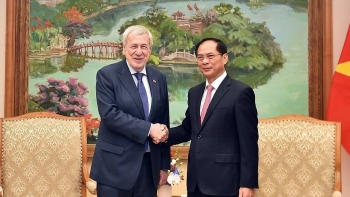 | President Luong Cuong's Chile Visit Strengthens Longstanding Friendship On the occasion of President Luong Cuong's upcoming state visit to Chile from November 9 to 12, the newly appointed Vietnamese Ambassador to Chile, Nguyen ... |
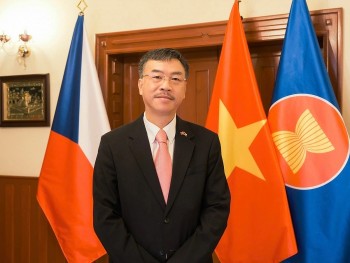 | Vietnam - Czech Promote Comprehensive Cooperation Across All Fields Vice President Vo Thi Anh Xuan's visit to the Czech Republic is of special significance. This is a concrete step in implementing the foreign policies ... |
Recommended
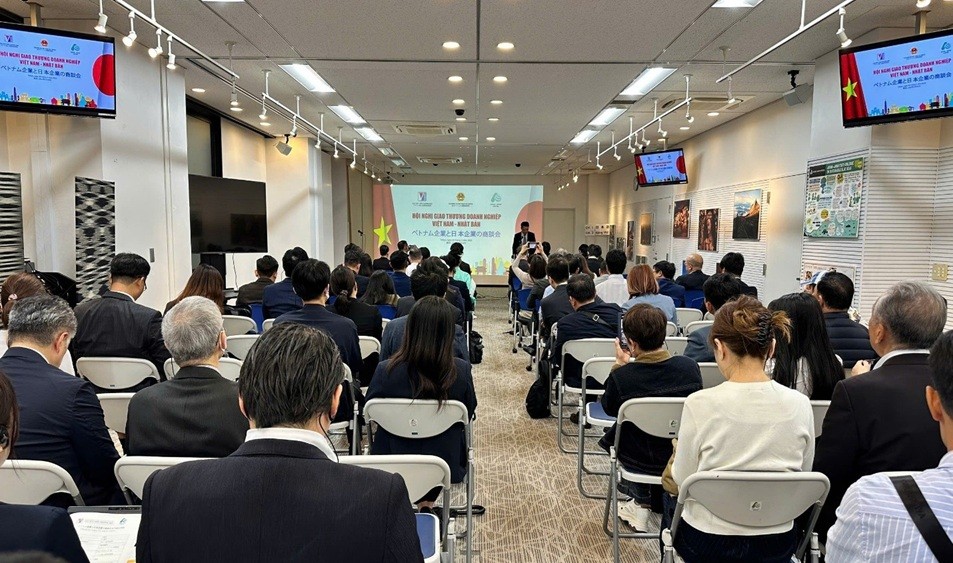 Friendship
Friendship
Promoting Vietnam - Japan Economic Cooperation
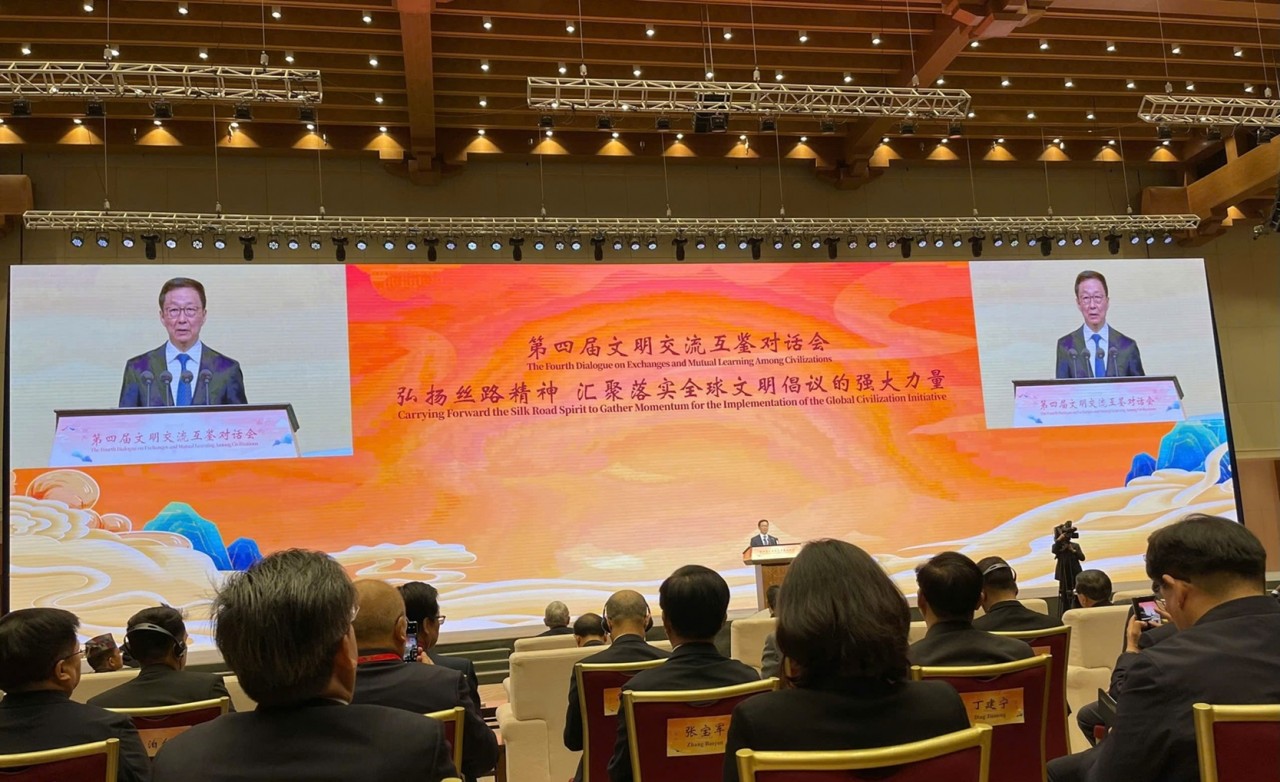 Friendship
Friendship
VUFO Attends Fourth Dialogue on Exchange and Mutual Learning among Civilizations
 Friendship
Friendship
COPI (US) Provides Free Medical Check-Ups for Nearly 1,000 People in Quang Nam
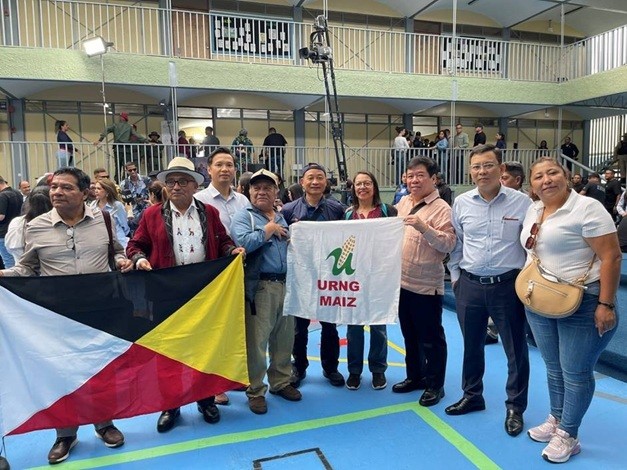 Focus
Focus
Strengthen Solidarity and Friendship Between Vietnam and Venezuela
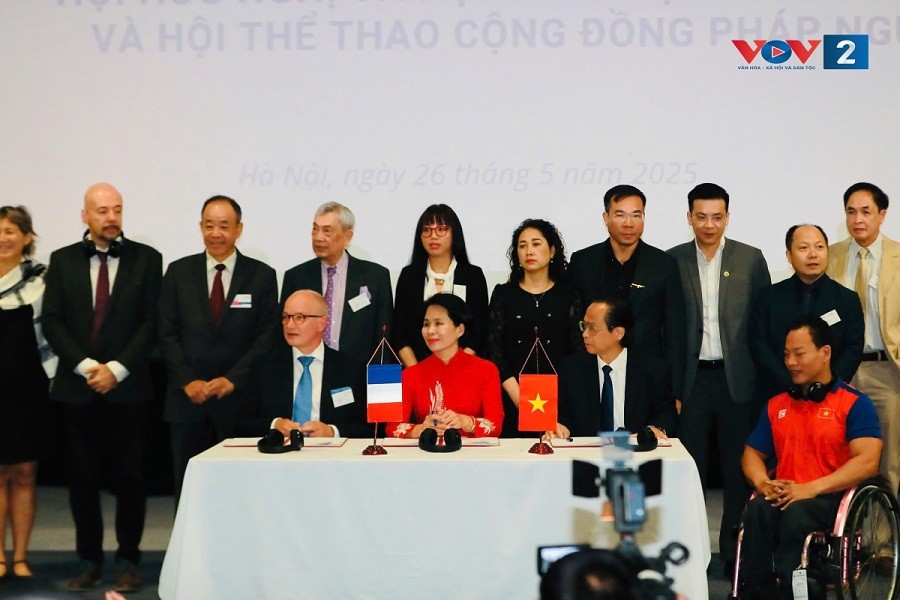 Friendship
Friendship
Vietnam, France Promote High-performance Sports
 Friendship
Friendship
Concert In Hanoi Highlights Vietnam - Azerbaijan Ties
 Focus
Focus
"Vietnamese - Cuban Children, Deep Friendship" Painting Contest Announces Winners
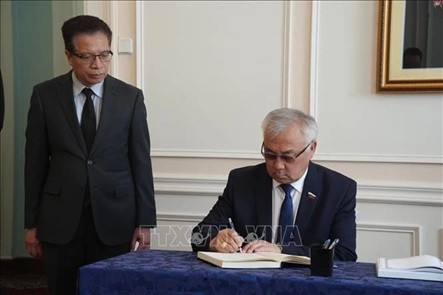 Friendship
Friendship


